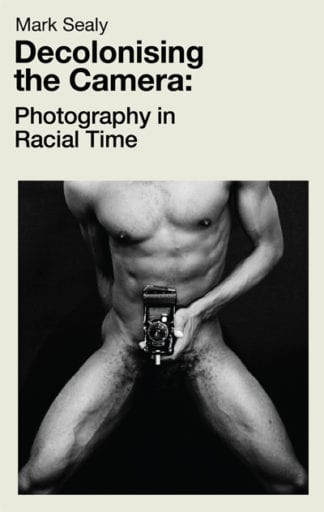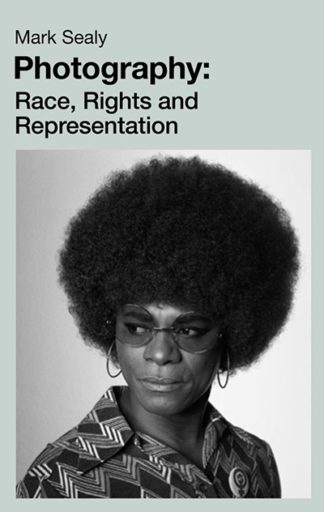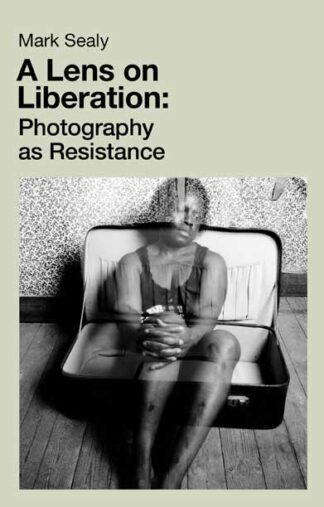One of three-book series by Mark Sealy
Following the highly influential Decolonising the Camera: Photography in Racial Time, this collection of essays, interviews and reflections gives new depth to Mark Sealy’s work challenging the legacies of colonial Othering in photography over a quarter of a century.
Weaving together analyses of work by Black photographers in the UK and internationally, interviews with key figures and personal reflections on the changing landscape of Black photography, this book offers an exploration of the past, present and future of decolonial visual practices. Sealy marks out a new path for photography – jazz-like, sensorial and experimental – in order to free it from the classifying colonial lens, offering the reader the opportunity to move both conceptually and spiritually into new visual realms when reading an image.
Photography: Race, Rights and Representation is a vital addition to the decolonial project occurring in contemporary photography and visual practice from one of its leading curatorial figures.
Introduction
Photography, Representation and Jazz
1. On Being in Limbo 2. Moments Outside the Frame 3. On Joy Gregory, Autoportrait 4. The Decolonial Logic 5. The Memory of Hope by Aïda Muluneh 6. On Wilfred Ukpong
Human Rights, Human Wrongs
7. Disposable People: Contemporary Global Slavery 8. Beyond the Lens 9. The Event in Focus (Is not Over) 10. Notes on Towards a Promised Land, by Wendy Ewald 11. The Canvases of Representation and the Photographs of Nontsikelelo Veleko 12. Label Cultural Baggage
Black Atlantic
13. Ward Four and More 14. James VanDerZee: Harlem’s Black Photographer 15. When Existence Alone Is Constant Torture 16. A Note from Outside, on Rotimi Fani-Kayode 17. A Gathering of Souls 18. On Faisal Abdu’Allah
– Photo insert –
Future-facing People
19. Critical Conjunctures 20. Every Photograph Has a Story 21. Between Feeling and Time: Brent in the 1980s and 1990s 22. On John Goto 23. Masterji: The Photographs of Maganbhai Patel 24. The Triumph of Optimism
Experiments with Time
25. From Here to Eternity 26. Absence and Presence: the work of Oscar Muñoz 27. Drowning World by Gideon Mendel 28. Travelling Backwards 29. Waiting 30. Nothing Is Forever
Photography: Promises to Make a Revolution
31. In Five Short Acts 32. Lumumba Framed in Colonial Time 33. The Photographs of Eustáquio Neves 34. What Have ‘We’ Done with the Image of Africa? 35. Les Bijoux I-IX, Maud Sulter 36. How Does the South Appear on Empire’s Art Map?
Sealy’s mode of ethical looking decisively disrupts any Eurocentric frame, recovering hidden narratives and marginalised practices that blast apart the tattered edifice of colonial time. The book argues for the right of recognition – before the law, before the camera, and, more so now than ever, within the institutions that guard a fractured mainstream culture … Whether in the images of Rotimi Fani-Kayode, Maud Sulter, Eustáquio Neves, or through the voice of Stuart Hall, the author pursues the affective power of decolonial vision for the understanding of being.
– Duncan Forbes, Head of Photography at the Victoria and Albert Museum, London
Mark Sealy’s Photography: Race, Rights and Representation is essential reading for all of us rethinking images in the twenty-first century. Sealy narrates three decades of ‘looking’ by revisiting his own archive and gathering not only the ghosts of the photographic past but the voices of our future. This remarkable collection is everlasting as it brings the aesthetic and the political in at a critical time in our history. – Deborah Willis, Chair, Department of Photography & Imaging, New York University Sealy uses jazz as a way of being and a way of thinking, as a ‘disruptive, unanchored space’. In the essays in this collection, he points to the continuing exploitation of black subjects. Bridging between the spheres of human rights and (post)colonial injustice through pieces spanning body and mind, Sealy proves himself an outstanding writer. – Wolfgang Kaleck, General Secretary, European Center for Constitutional and Human Rights




